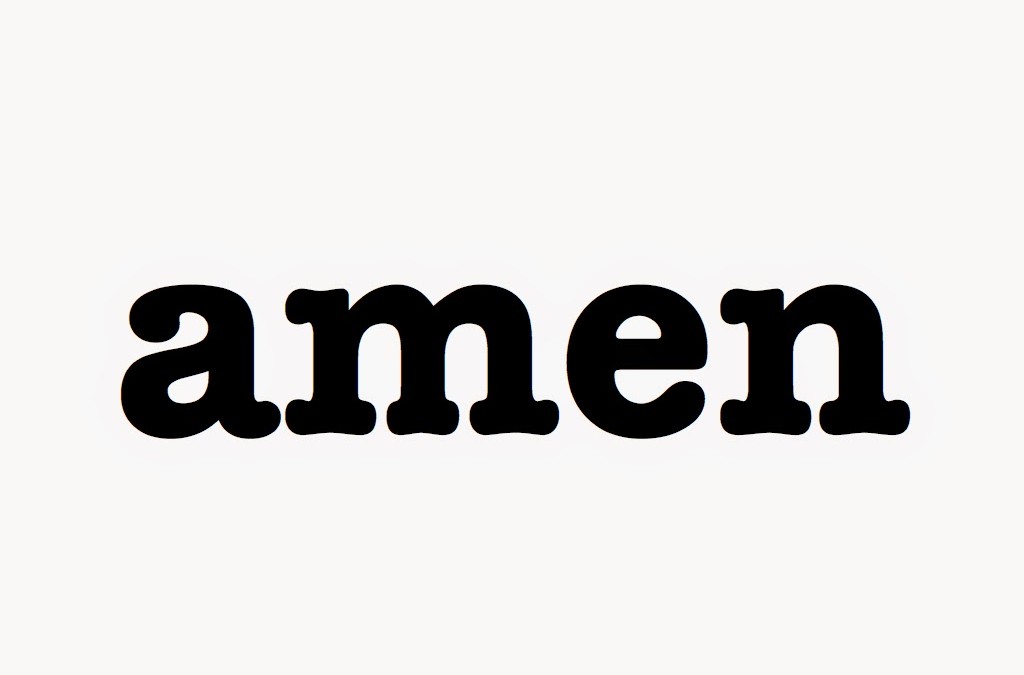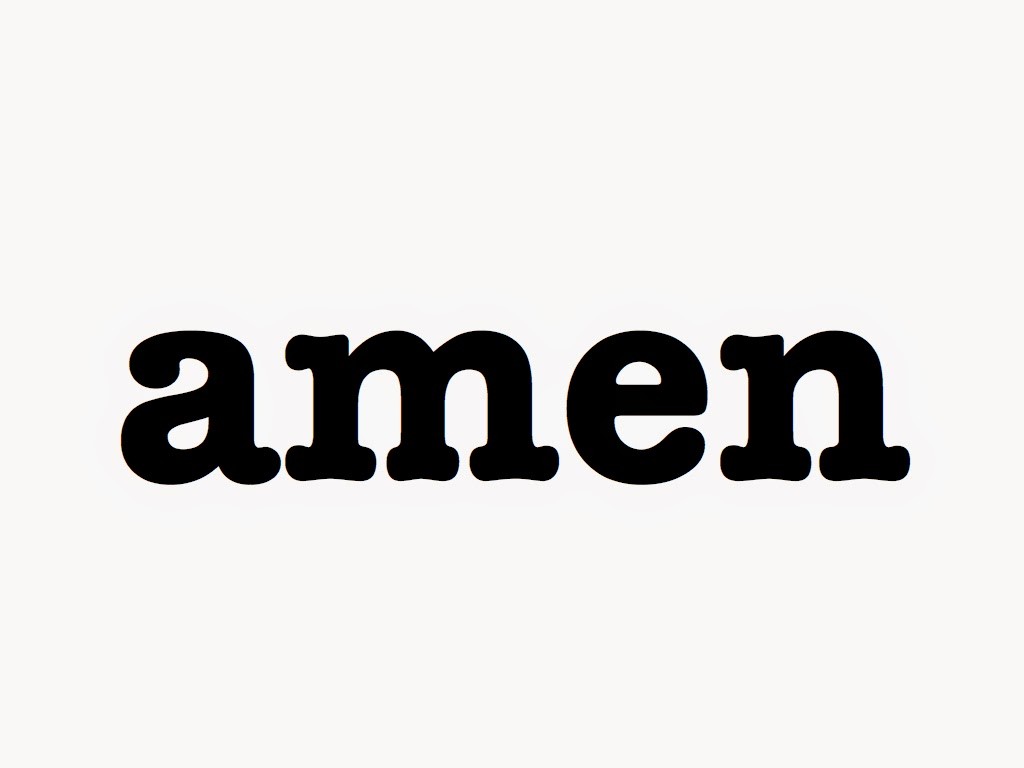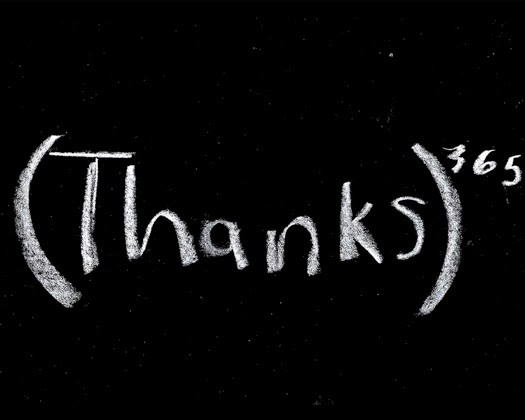
by Jonathan Manafo | Feb 18, 2015 | Sunday Conversations
In our North American culture we strive for such pretty lives, that when something goes wrong, when life isn’t perfect, we can’t seem to handle the outcomes. Even though we live in a day with the most advanced medicine and technology, we still wish for perfect, uninterrupted lives. Even medicine and the internet can’t stop suffering at our deepest human level.
It doesn’t matter who you are, we will in some way hit walls that hold us back. Gord Downie, from the Tragically Hip tells his story (via the Strombo show) about his wife being diagnosed with Cancer. Hearing this reminds us that even if you have a street named after you in a Canadian city, suffering and struggles are inevitable.
The biggest questions we have in life come from the unfortunate and unplanned circumstances in our lives. We wonder how we can get through difficult times or how we are to approach suffering? We also wonder where God is in the middle of if all.
I’m going to assume that in the middle of our struggles, whatever they are, we eventually ask 2 questions: WHY & WHERE?
We ask WHY did this happen to me? Did I bring it on or did it just happen? Did God give this pain to me or is he simply using it to teach me a lesson? Great question that most times can’t be answered fully. God even told Job, ‘you wouldn’t understand’.
The WHY question, as unanswerable as it seems, leads us to possibly a better question, that would be ‘WHAT?’. What can I learn from this mess in my life? What can I learn from the last 6 months of hell? Can this sickness teach me anything about me or life or purpose or faith? Who will I become after a divorce or a lost job.
The scriptures show us that we can embrace the tough things in life and actually let them teach us something. In Matthew 5, Jesus, on the side of hill, is teaching about faith and the kingdom of God. In his opening remarks he lists what have been called, The Beatitudes. Think about this, Jesus says ‘Blessed are…’ the poor, the hungry, the persecuted, etc. He says that those who suffer are blessed. How can that be? There’s no way that I can be ‘better’ because of my struggles?
Eugene Peterson says that “our faith is developed out of the most
difficult aspects of our existence, not the easiest.”
CSL says, “Hardships often prepare ordinary people for
extraordinary things”
Erwin McManus, “our struggles and suffering give us the context to tell
the greatest story of our lives.”
This resonates well with James 1:2-4 where we read…
Consider it pure joy, my brothers and sisters, whenever you face
trials of many kinds,3 because you know that the testing
of your faith produces perseverance. 4 Let
perseverance finish its work so that you may be mature and complete, not lacking
anything.
This verse is much easier to apply to other’s trials than to our own. We don’t want to consider our pain a joy, but the truth is that our trials and pain do teach us, they do test us, they do help us become the people God desires us to be.
When your trouble hits, and it will, before you simply begin asking for it to be removed, instead ask God to teach you something through it. It’s in the middle of our most difficult times that we are stretched into the best versions of ourselves. God may not remove the pain from you instantly, but he sure does give you what you need to walk through it. Walking might be the best metaphor for us to think about here. The scriptures show us that with God, we can walk through the fire, through the waters, through the storms – walking through is better than being pulled out because it’s in our ‘walking through’ that we become better followers of Jesus and consequently, better humans.
We also ask the WHERE question, and rightfully so. Where is God in all of this? Is he close or does he leave at the first sign of pain? The writers of the Psalms seemed to ask this question often – where are you God?
If there is one truth that makes all of faith make sense, it’s this, God is with us. This isn’t just a Christmas/Advent theme, it is the message of hope found in the gospels and the rest of scripture. God is in the middle of our struggle, whatever that struggle may be.
Hebrews 13:5-6 is a strong reminder of this. The writer is quoting Deuteronomy 31 & Psalm 18. Let these words ring true for you in your struggle…
“Never will I leave you; never will I forsake you.”
So we say with confidence, “The Lord is my helper; I will not be
afraid.
God assured us, “I’ll never let you down, never
walk off and leave you,” we can boldly quote,
God is there, ready to help;
I’m
fearless no matter what.
Who
or what can get to me?
Can there be beauty in the brokenness? Can there be hope
in suffering? Can there be gratitude in all circumstances? YES.
Instead of running away from our pain, we are made fully
aware that God is right beside us, in the middle of it, helping us walk through
it, with him, making us better, building us stronger, reassuring us of his
presence and his love. Even using us to encourage others through it all.
And remember this, as we move towards Easter, the cross of Jesus is the best example of God understanding and knowing our pain. He showed us love by embracing our pain, by taking on all our sin and struggles. We never walk through it alone.
– – – – – – – – – – – – – – – – – – – – – – – – – – – – – – – – –
small(er) group questions
How have you answered the WHY question during tough times?
What do you think about this CS Lewis quote,
“God whispers to us in our pleasures, speaks in our conscience, but shouts in our pains: it is his megaphone to rouse a deaf world.”
Take some time to talk about what James 1 says…
Consider it pure joy, my brothers and sisters, whenever you face trials of many kinds, because you know that the testing of your faith produces perseverance. Let perseverance finish its work so that you may be mature and complete, not lacking anything.
How important is God’s presence in all of this? Hebrews 13 says God will never leave or forsake us. Can you talk about how he’s been with you in the middle of your struggles?
Think about this verse as you close up your conversation…
“My grace is sufficient for you, for my power is made perfect in weakness.” Therefore I will boast all the more gladly about my weaknesses, so that Christ’s power may rest on me.

by Jonathan Manafo | Feb 10, 2015 | Sunday Conversations
This month at The Village we are serving up a series about some of the tougher, perhaps more sensitive issues of faith & life. The Middle is about how we can find God right in the middle of the things we deal with; those things that impact both our faith and our everyday lives.
For a bit of a pre-series summary check out this VIDEO.
Our first installment was this past Sunday as we interviewed two local family counsellors regarding issues that families deal with most. John Head works out of Brooklin & Coutice. He started and runs Head Family Counselling. Colleen Kennedy works in Pickering with Life Care Centres. Unfortunately our conversation was not recorded, however, we’ll do our best to address some of the things we talked about.
What are some of the obstacles families face today?
Both John & Colleen seemed to agree that many of our struggles come from our pace of life. We seem to go at mach speed and tend to miss the important moments in our lives that build relationships.
John compared living out west to living in Ontario, with the biggest difference being how much people work in Ontario and how little time people take to rest. John emphasized what 30 minutes of exercise a day can do for our minds and bodies. Both agreed that with a little effort to plan time for R&R, couples and families would see a huge difference in how they relate to one another.
The topic of social media, tablets and phones came up. We all know how beneficial these devices are to our work and home calendar, however, we also know that they take us away from physical communication. A suggestion was made, that for dedicated periods of time, we would all shut off our phones (i.e. dinner, an hour in the evening, early morning, etc.) and simply ‘BE’ together. I know that my family has set aside days at a time where we do this, and the relational vibe during those days are through the roof.
The need for Communication seemed to take up a large part of our interview. We are very aware of this buzz word when it comes to marriage, family, and relationships in general. The gist is this, ‘do what you can to keep the lines of communication open’.
Some suggestions were…
– In regards to your spouse, simply set-aside time, daily and weekly, to talk and and even catch up on what you may have missed the day before.
– In regards to children, figure out what makes your child tick, what they’re passionate about, and do what you can connect with them around that activity or passion. Knowing their personality is a key part of building deep relationship with them.
We talked about building into your family from the ground up – from the beginning of your family (or perhaps starting today), instilling things that build each other up. Set aside ‘family’ nights. Sounds old school, but it’s so important. Whatever the night looks like, a movie, games, a hike, swimming, a drive to your favourite little town, whatever, do it.
When we asked what broke John or Colleen’s heart the most in the conversations they’ve been involved in, they mentioned Abuse & Broken Marriages. I can’t speak to abusive situations, but of course, I am hurt when we hear about them. I can however speak to broken marriages.
Many of us know that Marriage has a success rate (or failure rate) of about 50%. However, John Head, quoting Steve Carrel of all people, said that 93% of marriages are ‘doable’, leaving room (7%) for some marriages that are just not going to work out. Marriage is hard. It’s not easy. It’s both beautiful & difficult. That said, with work and effort and intentionality, marriage is so worth it – the relationship between a man & woman is designed to be amazing. However, at the end of the day, it is still a relationship between two human beings who are emotional and inconsistent. That’s what also makes it awesome, that two people can come together and become one. (check out the event to your right)
The last thing we talked about was how we can keep God in the middle of our family, in the good and bad moments. Like all relationships, we need to invite him to be a part of it. God is not afraid of whatever you’re going through…he’s seen it all…and he cares more than anyone. He wants to help and he wants to love on you, no matter the situation. Perhaps Deuteronomy 6 can help. We see instruction to invite God into every part of our lives. Read it for yourself,
4 Hear, O Israel: The Lord our God, the Lord is one. 5 Love the Lord your God with all your heart and with all your soul and with all your strength. 6 These commandments that I give you today are to be on your hearts. 7 Impress them on your children. Talk about them when you sit at home and when you walk along the road, when you lie down and when you get up. 8 Tie them as symbols on your hands and bind them on your foreheads. 9 Write them on the door frames of your houses and on your gates.
At all costs, show your love for God, and your relationship with him, in every part, every room, every area of your family. The more places he is invited, the more he can do in us and through us.
– – – – – – – – – – – – – – – – – – – – – – – – – – – – – – – – – – – – – – – – – – – – – – –
small(er) group questions:
This week’s talk was a little different. What did you get out of the interview with John & Colleen? What were some things that stood out?
Where are you in your family journey? Starting, in the middle, empty nest, single? In light of your age and experience, what have you learned thus far…or feel you really need to learn moving forward?
Do you think families have it harder or easier today? How can the church help? What is the best way to encourage and inspire our friends and neighbours (and each other) to lead healthy marriages & families? How do you answer this as a single person?
What role does God have in all this? When you face family struggles, how can God help? Is it easy to push God away or are you even more desperate to invite him in? Any practical examples you can bring to this discussion? Something you may have gone through in your past?
Pray for families & marriages tonight. For relationships where people want to honour and love each other deeply. If you know of a family that’s going through a hard time, financially, physically, relationally, pray for them tonight, even if you can’t name who you’re praying for.
(put February 27 on your calendar…Married Life Live is a night we’re setting aside to encourage, cheer on, and inspire better relationships)

by Jonathan Manafo | Feb 3, 2015 | Sunday Conversations
We’ve been talking about 3 words that either lead us to pray or are used when we communicate with God in prayer. Just when we thought we were done, we thought there might be a little more to say about this. First, a recap…
We started with the word HELP. It’s the word that forces
us to start up a conversation with God. Why? Because we need HIM.
We moved on to prayer as gratefulness. Ultimately, we
are thankful to God for everything. He’s our provider, our Father, our saviour,
our…everything.
Lastly, we reminded ourselves of a God who WOW’s us, who blows our mind, who gets our attention…in Creation, in relationships, when we’re outdoors or at our kitchen table.
There is one more word that seems to get little attention. The word is AMEN. We kind of rush through the word quickly hoping to get to our next task or conversation.
Anne Lamott says something profound about this, “Amen is only as good as the
attitude in which it’s said. If you are trying to finish up quickly so you can
check your cell phone messages, you are missing the chance to spend quiet
moments with the giver of life.”
So before we close the book on prayer (for these posts) let’s see…was there something else to say?
One concern we may have about prayer is that it can become selfish. We ask God for help because we need help, we thank God because he’s been good, we’re wow’d by God for what he does.
If prayer is a conversation, then we need to leave some space for God to speak to us, to challenge us, to encourage, yes, but also to inspire us towards better things. This is especially true when we talk about the word HELP. When we pray for help in personal matters; things like finances or health or relationships, often we wait for God to act. However, when we pray for God to help others, for God to mend brokenness, for God to bring peace, could it be that he in turn invites us to partner with him in the answers to our prayer?
Shane Claibourn writes, “Prayer is important, but just as important is the call to become the answer to our prayers.”
In John 4 we read some profound words about receiving and giving ‘love’. As you read these words, insert the word ‘help’ where the word ‘love’ is and see what happens…“Since God loved (helped) us so much, we also ought to love (help) one another. No one has ever seen God, if we love (help) one another, God lives in us.”
When God helps us, we should be inclined to, compelled to, inspired to, help others. Just as we receive love and then share it, the same is true for help. Actually, one is very much connected to the other.
The same can be said for ‘thanks’. If we’ve arrived to a posture of gratefulness, in light of all that God does, our reaction or response to it should always be action. (Colossians 3:17)
Anne Lamott says, “Gratitude begins in our hearts and then dove tails into behaviour.
It almost always makes you willing to be of service.” “Saying & praying ‘thank you’ leads to
a crazy thought: what more can I do?”
In John 4, Jesus is in conversation with a Samaritan women. This is already a big deal, because Jewish men (1st century) don’t talk to Samaritan women in public. In this exchange about water, Jesus says that he can give this woman water that will quench all thirst…the deep thirst inside her soul. He also says that if we receive this water, it doesn’t just come into us, but it flows out of us. What we receive from God’s well is what we also give. One sip of Jesus’ living water, and one becomes almost
immediately a gushing fountain of living water for others. (Pete Scazzero)
As we talk about prayer, or even better, as we pray, be thoughtful and aware of what God might be telling you, not just what you’re asking of him. Don’t just pray for your self, pray for others, and as we do that, listen to what God might be saying to you about being the very help that you are asking for. How will our neighbourhoods, cities, world, see God’s love and help? By you and me partnering with God to make his love evident. Mark Buchanan says, “How does the world know
God’s name, nature, mercy, justice? They see it through you and me or not at
all.”
The 3 words remain the same: HELP, THANKS, WOW, but when
we say AMEN, let those words come alive in your life…so after we spend time
with Jesus, we can begin to look like him too!
– – – – – – – – – – – – – – – – – – – – – – –
small(er) group questions:
What compels or draws you to pray more? When things are going well or when things go bad? In other words, do you go to God more for help or to say thanks?
Prayer seems to be understood as a good thing to do if we want to develop a relationship with God and understand his ways. BUT…what is it about prayer that makes it hard to be consistent with it?
We said many times over the last few weeks that prayer is inviting God’s voice to be the loudest & clearest in our lives. What does that mean to you?
Jesus not only prayed, but he taught us to pray a certain way (Matthew 6). Quickly read the Lord’s Prayer in Matthew 6:9-13. What can you learn from Jesus’ instruction? Can you identify our January series words (Help, Thanks, Wow) in the prayer?
If we only ask God for help in personal matters, prayer can be seen as selfish. How has or how does God turn to us with an invitation to become some of the answers to our own prayers? Here’s something from 1 John 4 that might help, “Since God loved (helped) us so much, we also ought to love (help) one another. No one has ever seen God, if we love (help) one another, God lives in us.”
Tonight is a perfect night to pray for each other (as is every small group). As you share personal needs, make sure to add a need that reflects issues of injustice, evil and brokenness in our our world.
(think about coming back next week with some idea’s to bring your prayers to ‘life’)

by Jonathan Manafo | Jan 28, 2015 | Sunday Conversations
I was looking through my stash of collectables (souvenirs and such) and was reminded at some of the amazing things that I’ve experienced. Let’s put this in context: I’ve never been to Europe or California, I’ve never been to a super bowl or world series. So the memories I have may be different than some of yours, but the ones I’m referring to all made me say and feel one word, WOW.
A little pack of guitar picks from a John Mayer concert brought me back to experiencing the exceptional talent of John Mayer’s playing and writing. WOW.
A golf towel from the 2013 PGA championship in Rochester reminds me of two full days of walking alongside professionals who make a hard game look easy. WOW.
A green (Spanish) Sprite bottle filled with sand took me back to a vacation Janet and I were on in Cuba. WOW.
Little shoes the size of my palm reminded me that our 13 year old son was actually that small. WOW.
A little dress the length of my forearm reminded me that our 10 year old daughter was once that size. WOW.
What wows you? What in your past made you just say – WOW? Was it an experience, a relational moment, nature, sports, faith, or others?
In these 3 connected talks/posts, we’ve been talking about three words to make prayer simple – HELP, THANKS, WOW. We know that help is a word we use when we’ve hit a wall. Thanks is a word we use when we’ve stopped to reflect how good God is. Wow is a word we use when we’ve come to grips that God is bigger, stronger, more loving, creative and powerful than we had ever imagined.
It seems like we get caught in complacency when it comes to being wow’d by God. When aware, we see God’s creation, God’s power, God’s provision, and stand in awe of it all. What often happens is that our heads begin to drop and our vision fades of all that’s above us, all that God has done, and does is – we lose sight of it. Is it possible that our machines have driven much of this? Mark Buchanan says that our screens have replaced the heavens (Book: Your God is too safe).
There are at least two things (many more of course) the scripture encourages us to look at and be WOW’d with: God’s Creation & God’s Character.
Psalm 19 fills us in on God’s great creative power…
The heavens declare the glory of God; the skies proclaim
the work of his hands.
2 Day after day they pour forth speech;
night after night they reveal knowledge.
3 They have no speech, they use no words;
no sound is heard from them.
4 Yet their voice goes out into all the earth,
their words to the ends of the world.
In the heavens God has pitched a tent for the sun.
5 It is like a
bridegroom coming out of his chamber,
like a champion rejoicing to run his course.
6 It rises at one end of the heavens
and makes its circuit to the other;
nothing is deprived of its warmth.
The Psalmist is trying to get our attention here. He wants us to have no doubt in our minds, God is the creator, and all we have to do is look up to see what he’s done. The metaphor of the skies and sun are beautiful.
Being WOW’d by God’s character, especially in prayer, is seen and taught by Jesus. In Mathew 6, while teaching on prayer, Jesus tells us to start our prayers by acknowledging God for who he is. “Our Father, who art in heaven, holy is your name”. Think about this: before we ask for his will to be done, before we ask for daily bread, before we ask for forgiveness, Jesus says we should acknowledge God’s location and character – he’s in heaven & he’s holy. Only after we are WOW’d at who God is will we have the confidence to go to him for all the other things Jesus lists in the prayer.
We also see this in Proverbs 3, ‘Acknowledge him (God) in all your ways and he will make your paths straight.’ Before we invite God to fix stuff, we need to acknowledge that he is the only one who can. Acknowledging God is also the first step of worship. When the church gathers to sing God-songs, we do so to remind ourselves of our God, the one who creates, loves, saves, heals, etc. Basically, in worship, we are WOW’d by God once again.
Here’s the bottom line, don’t lose the wonder in your prayer life. Be continually awestruck by God. Mark Buchanan put’s it so well when he says, “Don’t ever let a faith based on staggering mysteries (trinity, incarnation, cross, resurrection, the Holy Spirit) lose it’s wonder and awe.”
On your next walk…
During your next drive in the country…
In your next conversation with your child…
While hanging out with wonderful friends…
During your next very tasty meal…
The next time you gather to worship with a church community…
When you take your first ‘awake’ breath in the morning…
Be sure to say & pray … WOW!!!

by Jonathan Manafo | Jan 21, 2015 | Sunday Conversations
Try this little experiment: For one day, make your initial response or greeting include a complaint. After your first hello, complain about something. (some people are really good at this). On day two, do the total opposite: Make your initial response or greeting include a thank you. After your first hello, be grateful about something, anything. If you were to do that, and then look back on those two days, you’d notice something. Emotionally, you and those around you would feel negative or positive, depending on how you start conversations. Studies show that people who are grateful are happier, and in turn, those who aren’t grateful are less happy.
We could all use a little more gratefulness. We know what it feels like to be appreciated. I bet we also know what it feels like when we show appreciation.
They say the enemy of gratefulness is entitlement. When we convince ourselves that we deserve all the ‘nice’ stuff we have, we forget to be grateful for all of it.
It’s one thing to be appreciative to friends and co-workers, but what about saying thank you to God? Or better yet, do we say thank you enough? Weeks go by when things are going great and we tend to leave God out of the equation. When a storm hits, we run to him for help. Now, the beautiful thing about God’s grace is that he hears us when we cry for help, even if we haven’t really been chatty with him for a while. A more balanced approach to faith and relationship (notice I didn’t say religion) includes words of ‘thanks’ to go along with our cries for ‘help’.

Prayer should and often does include the word ‘thanks’. We’ll say a quick ‘thank you God’ when something goes our way. We might even say it with more zest, like, ‘thank you thank you thank you God’ if a loved one makes it through an illness, a lost child is found or you get through a financial nightmare. Heck, even my atheist & agnostic friends might say something like, ‘I guess the big guy upstairs is looking out for me today’. The thing is, the same way we shouldn’t just go to God when we need help, we also shouldn’t just say thank you when something seems to go our way.
Thanks is at the heart of prayer. Thanks, not only needs to be part of our regular vocabulary, but more importantly, our prayer vocabulary.
In Colossians 3 (one of my favourite metaphors in Scripture) Paul writes about things we take off and things we put on. He wants to teach a group of early Christians what it means to live out the ways of Jesus. After summing up the behaviour you want to subtract, and the behaviour you want to add, Paul says these 3 powerful words, ‘And be Thankful’. It’s a really important add-on…like saying, ‘BTW in case you didn’t know, being thankful is an expression of our faith in Christ’.
Brian Walsh, in his book, Colossians Remixed, gives us this insight on how Paul’s 3 words are so vital for us today.
“we are held captive by dissatisfaction” … “ingratitude is
ingrained within every social class within the culture of money”
& “the
longer we live ungratefully, the more we strengthen the claims of a culture
that takes everything & everyone for granted”
In light of Paul’s call to be thankful, Walsh says, “In a culture
caught in an insatiable craving for more, a culture of perpetual
dissatisfaction because there is never enough, the community renewed in the
image of the creator is characterized by radical gratitude”
I’m not sure how or when you pray. Of course, I know that I personally don’t pray enough, and I imagine it’s the same for you. Trying to pray consistently can be daunting, with overwhelming schedules and lots of demands. But if we don’t, we will only be consumed in our stuff which can distract us from the ways God wants us to live and the things he wants us to value. Prayer is allowing God’s voice to be the loudest and the clearest. A simple, yet profound way to hear him clearly is taking time to say THANKS. Saying thanks to God will change your view of the world, your view of God, and your view of others…and it will change you too.
Let’s keep prayer simple: Three words might do it – help, THANKS, wow!
(next week…WOW God)

by Jonathan Manafo | Jan 13, 2015 | Sunday Conversations
I was first introduced to the practice of prayer when I was a kid. I was taught to pray before meals, before bed, and at certain times for certain things. I was also taught to develop some kind of consistent prayer pattern. However, I really started to see what this meant when I would catch my grandparents praying. It could be the middle of the day or first thing in the morning. They would never feel bad that I interrupted them, and they always seemed to show that what they were doing was very normal.
Prayer is something people start thinking about when they begin thinking about what it means to be spiritual. Now, spirituality is not the goal, Jesus is the goal. Being more spiritual doesn’t make you more like Jesus, instead, being more like Jesus will make you more spiritual. If that’s true, then people who are journeying to become followers of Jesus will begin praying more. They’ll want to start developing some patterns and routines that involve prayer. But where do we start? What do I do if I don’t know how to pray?
Much has been written on this subject that’s for sure. Over the next three posts we’d like to make prayer approachable and even achievable; to do that we will break it down to three words: HELP, THANKS, WOW. Prayer is more than these three words, but for those who see prayer as a mountain they’ll never climb, these three words might just be what they need to take the first few steps.
A classic acronym for prayer over the years has been A.C.T.S. (Adoration, Confession, Thanksgiving, Supplication). Start by telling God who he is, worship, then confess your sins, then move to saying thank you, and finally, end by asking God to help you in your circumstance or others. As true and wonderful as that is, many people don’t start there. Why? Because most often we forget to talk to God and just scream out help when something goes wrong. Is ‘Help’ the best way to start? Maybe not, however, sometimes it’s the place we do start our conversation, and even if it’s been ‘too’ long, God is listening.

The word ‘HELP’ comes up 287 times in the bible (NIV). When you add other words and phrases (i.e. deliver, heal, save, redeem, restore, etc.) you can imagine how many times we see the idea of being helped and/or calling for help in Scripture. For the most part, a cry for help is associated with some kind of prayer; a moment when a human being has reached the end of their rope and they realize how deeply they need God. The Scripture is also very clear on this, God is the one who can actually help us. He’s bigger, better, stronger, more capable, than we could ever be. Perhaps God says it best in Isaiah 57:13; that going somewhere else for help may not be the smartest decision. “When you cry for help, let your collection of idols save you! The wind will carry all of them off, a mere breath will blow them away.” God is the one who saves, who makes us better, who heals, who restores, etc. It’s no wonder that he not only invites us to, but loves it when we call to him for help – it means that we’ve come to understand that our lives are found in and depend on…HIM. “It’s not great faith that we need, it’s faith in a great God”, saysNT Wright.
Anne Lamott says “The first steps in practicing God’s presence (prayer) is admitting that: we are so ruined, we are so loved, we are in charge of so little.” This is why, over and over, especially in the Psalms, we find honest cries for help. Two places that show us clearly are Psalm 5 and 18.
Psalm 5:1-3
1 Listen to my words, Lord,
consider my lament.
2 Hear my cry for help, my King and my God,
for to you I pray.
3 In the morning, Lord, you hear my voice;
in the morning I lay my requests before you
and wait expectantly.
Psalm 18:1,2&6
1 I love you, Lord, my strength.
2 The Lord is my rock, my fortress and my
deliverer; my God is my rock, in whom I take refuge, my shield and
the horn of my salvation, my stronghold.6 In my distress I called to the Lord;
I cried to my God for help.
From his temple he heard my voice;
my cry came before him, into his ears.
The Psalmist, on both occasions makes no bones about it. He’s grieving, he’s in distress, and the only person he has any confidence in to help him is – GOD. Why? Because this God, Yahweh, is his God and his King, his refuge, his shield, his rock, his fortress, and his deliverer. He even asks God to help before any problems arise, so he can rest assured that he is covered.
What are you scared of, hurt by, struggling with, stuck in? God invites us to cry, scream, whisper, ask for…HELP. No matter what the problem. Big or Small.
Philip Yancey says, “In the presence of the great physician, my most appropriate contribution may be my wounds”. No fee, no hassle, no finagling – God hears our cry for help, and responds with love, mercy, wisdom and power. We simply have to ask.
The Beatles got it right. Help! I need somebody. Help! Not just anybody. Help! That’s right, not just anybody – God. Maybe ‘Help’ shouldn’t be the first word in your prayer, but if it is, God is listening and glad you called on him. Don’t be too proud to ask. No matter how unspiritual or far off you feel. He cares.















